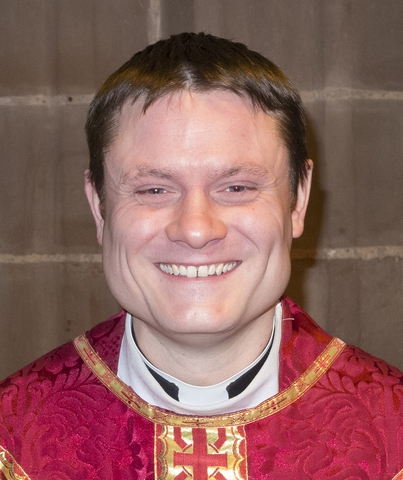
December News From the Clergy
25 Nov 2022 • From the Clergy
In some ways, 4th July 2010 seems like yesterday. It was on that day that I was ordained deacon in Worcester Cathedral. There was a moment before the service, in the crypt, where we sat in silence and the bishop then prayed with all the candidates. Part of me wanted him to just do the ordination then, quietly and simply, rather than face the very public ceremony upstairs. It is all remarkably clear in my mind, which is why it sometimes comes as a shock to realise that this happened more than twelve years ago. In my mind, I sometimes still think of myself as that youthful, inexperienced twenty-eight-year-old, subconsciously overlooking the passage of the years. As the bishop reminded me recently, that is no longer the case. Of those twelve years, nine have been spent (under various aliases as the diocese repeatedly changed my title) in West Worcester. They have been years which have seen considerable change and some major challenges. It is only in pausing, looking back across what has happened, that it becomes possible to realise that is the case, and reflecting on the past is crucial to helping us discern where we go in the future.
That is the reason that clergy take sabbaticals. While some dioceses have begun to devalue them, Worcester continues to emphasise their importance and encourage clergy to take them. The idea is that they are taken for three months, once every seven years. ‘Sabbatical’ derived from ‘sabbath’, the idea of one in seven being kept apart for rest. It is the same idea which lies behind the idea of sabbaticals, which are opportunities to pause, reflect and renew.
After some ten years of preaching almost every Sunday, I am aware of the need to refresh myself, to replenish the well. Teaching is at the heart of the priestly calling and parochial ministry, and to take that seriously - both preaching and leading study - requires commitment and a willingness to continually learn and think.
Sabbaticals give parishes a chance to be refreshed in this respect too, to hear sermons and be taught by others who are less familiar, such as diocesan clergy who provide support in these circumstances.
Even more critically, priests are called to lead the community in worship, to minister the sacraments and preside at the Eucharist, which is at the very heart of priestly ministry. Yet the decreasing numbers of clergy means that there are almost no Sundays, holidays aside, in which incumbents are not the ones taking the service, which can be draining for their own spirituality. A sabbatical is thus a vital time of spiritual refreshment as well. It should be a time when both priest and parish can reflect and refresh, allowing them to look afterwards to where they are being called together in the future.
Given how much history you endure in sermons, it won’t surprise you that part of what I will be doing with my time away will be historical research. I have a couple of projects on the go on which I hope to make serious progress. Nor will it surprise you to hear that I intend to broaden my experience of South America and the wider world. All being well, I will return in April with plenty of stories and ready for us to look to the next stage of our journey. For now, do hold me in your prayers during these next three months, as I will continue to hold you all in mine.
Phil